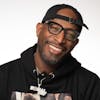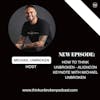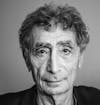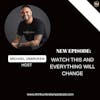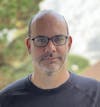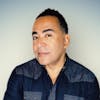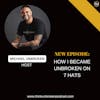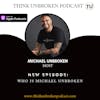Finding Joy and Purpose Through Patience and Trauma Healing | with Tamara Fox
Childhood trauma and adversity can have lasting impacts, but with patience, compassion, and healing, we can overcome and thrive. In this episode, Michael and Tamara Fox share their journeys of childhood... See show notes at: https://www.thinkunbrokenpodcast.com/finding-joy-and-purpose-through-patience-and-trauma-healing-with-tamara-fox/#show-notes
Childhood trauma and adversity can have lasting impacts, but with patience, compassion, and healing, we can overcome and thrive.
In this episode, Michael and Tamara Fox share their journeys of childhood trauma, loss, grief, and healing. They dive into the importance of acknowledging pain, sitting with discomfort, and continually doing the inner work.
They stress having patience with the process, finding purpose in the pain, and discovering joy and optimism amidst the hardship. Michael and Tamara emphasize the necessity of healing yourself before you can fully show up for others.
If you've experienced trauma, loss, or feel stuck in transition, this conversation will inspire you to lean into the darkness, tend to your inner garden, and believe in your resilience. There is light and life to be found, even during the hardest seasons!
************* LINKS & RESOURCES *************
Learn how to heal and overcome childhood trauma, narcissistic abuse, ptsd, cptsd, higher ACE scores, anxiety, depression, and mental health issues and illness. Learn tools that therapists, trauma coaches, mindset leaders, neuroscientists, and researchers use to help people heal and recover from mental health problems. Discover real and practical advice and guidance for how to understand and overcome childhood trauma, abuse, and narc abuse mental trauma. Heal your body and mind, stop limiting beliefs, end self-sabotage, and become the HERO of your own story.
Join our FREE COMMUNITY as a member of the Unbroken Nation: https://www.thinkunbrokenacademy.com/share/AEGok414shubQSzq?utm_source=manual
Download the first three chapters of the Award-Winning Book Think Unbroken: Understanding and Overcoming Childhood Trauma: https://book.thinkunbroken.com/
Join the Think Unbroken Trauma Transformation Course: https://coaching.thinkunbroken.com/
@Michael Unbroken: https://www.instagram.com/michaelunbroken/
Follow us on TikTok: https://www.tiktok.com/@michaelunbroken
Learn more at https://www.thinkunbrokenpodcast.com
Learn more about Tamara Fox at: https://www.awakenempowerment.com/
Support this podcast at — https://redcircle.com/think-unbroken-with-michael-unbroken-childhood-trauma-cptsd-and/exclusive-content
Advertising Inquiries: https://redcircle.com/brands
Privacy & Opt-Out: https://redcircle.com/privacy
Support the Podcast: Become a listed sponsor!
Follow me on Instagram @MichaelUnbroken
Learn more about coaching at https://coaching.thinkunbroken.com
Get your FREE copy of my #1 Best-Selling Book Think Unbroken: https://book.thinkunbroken.com/
Michael: Hey, what's up unbroken nation. Hope that you're doing well. I'm very excited to be back with you with another episode with my friend, Tamara Fox, what is going on? How are you today?
Tamara: I'm doing well, Michael. How about yourself?
Michael: I'm amazing. I'm super excited to be here with you today to have this powerful conversation. And I think that people who will stick around and listen to this episode are going to get a tremendous amount of value But also I think one of the things that is probably going to happen through your story and your journey is people are going to understand the power that we have to create the life that we want to have. And I think that's one of the things I'm constantly trying to pursue in this show. Six years, 700 episodes in people often ask me, like, why do you still do this? And I'm like because it's about the human experience, it's about our ability to connect and have these powerful and profound conversations. And so I think that's, what's going to happen here. I'm curious as we jump in, tell me what was childhood like what was it like for you growing up? What was your experience?
Tamara: Yeah, I think I had in many ways a fairy tale childhood until I was about 12 and when it comes to a lot of things. So I was raised in Evergreen, Colorado, which I'm not sure if you're familiar with how familiar you are with Colorado, but Evergreen is a very safe suburb. It's in between Denver and like the mountains, very safe suburb and I grew up in a very safe neighborhood where we just ran around to whatever we want, and my dad did really well. So we went to, we belong to country clubs and had, like, when you think of or at least when I was a kid, thought of like picture perfect life. I really had that until middle school when my parents got divorced, and that's when I think my life started to change. And then it wasn't until I was 19 that my life had a total 180 and I really experienced trauma and tragedy. And I experienced some tragedy as a child, but not to the extent I did when I was 19 years old. Yeah. And
Michael: Yeah. And I think a lot of people, that holds true. And my hope is, as we dive into this, you look at research like the ACE survey, Adverse Childhood Experiences survey, and that study, and they point to something like divorce and childhood really being a traumatic experience. And, it's interesting that you 10 point of immediately, and I think like a lot of people and what's such a bummer is if you think about it right now, like divorce rate in America is like 60 percent and so it's we automatically are setting up all of these kids for failure, but what was that journey? What was that space between 12 to 19? Obviously we'll dive into the 19 year old stuff, but and that space immediately, that kind of change in life and circumstances and understanding of family dynamics and love and all that, like what was happening for you in that time?
Tamara: Yeah. So my parents got divorced when I was in middle, I think I was 12 when I found out my parents, 12 or 13, when I found out my parents were getting divorced and that experience in itself was actually somewhat traumatic for me. So my dad is also deceased, so he's no longer living now. He passed in 2020, but I had found out my parents were getting divorced because when I was a kid, we had our computer was facing the, the screen was facing the door to the office, but we had one of those older max that would, cause I'm 32 now. So back when I was a kid, 20 years ago, the max screen would swivel. I don't think they make them anymore. I don't know if you remember those max screens that would like swivel. And my dad, every time I would go into the office would actually swivel the max screen away from me. And I was like, that's suspicious, that's odd. And I had my dad's email password and actually went into his email and found him on a dating website. So that's how I found out my parents were getting divorced, which most children get sat down and said, or a parent tells them or a sibling, somebody tells them, Hey, you're, we're getting a divorce. And here's why I picked up the phone, call my dad and said, I never want to talk to you again, and didn't talk to him for six months because finding out that way was very scarring as a child. And then until I was 19, my relationship with my dad was very like rollercoaster up and down, I always wanted a good relationship with him and tried in different ways, but because of his own mental health, things that he experienced and many mental health issues he had himself personally, our experience, our relationship was really rocky and tumultuous, and I never had that consistent father figure. So I think between the ages of 12 and 19, it was a lot of growth without my dad really being consistent in the picture too.
Michael: Yeah, I imagine that's a very difficult experience to have and that aspect what's so interesting is like in that those formative years like you're we're shaping our understanding of relationships of love of what it means to be a family and in that it sets this weird precedent and I don't know if it's true for you but Watching a very chaotic, tumultuous, unkind, unloving stepfather in relation to my mother who was, a drug addict and alcoholic. I find myself, later on in my 20s and late teens and 20s dating people representative of that. And being like, oh, this is weird, I'm in this relationship that's like dating my mother. Which was like this fucking crazy moment for me where I was like, oh my god, dude what are you doing? But it makes sense because it becomes the thing that you understand. And when you're a child, like you don't understand this. Nobody really, of course in your scenario, nobody set you down. And I was like, Hey, here's what's happening, and that helps. I think in two ways, and I'd love your take on it, I think that in part, even though it's like this really painful experience, it does build some resiliency in you, but then on the other side of it, it's like it just takes so much from you that you're like, clawing at the universe and asking why.
Tamara: Yeah, I think all of our life experiences build resilience in different ways and I've definitely learned that in the last, 12 or so years since I guess almost 13 years now since turning 19, especially, but the other thing too is our parents are supposed to be the ones that make us feel safe. And they're supposed to be the ones that create this environment, and when you have something, my dad was also a drug addict and verbally abusive after my high school years. So not while I was a child, but while I was a young adult, when you have a parent who is inconsistent or unreliable or creates an environment where you don't feel safe, that is almost like a wound that you carry until you heal it as an adult. So in a lot of ways, it created this like wound for me as a child where I didn't feel safe in the family dynamic, and I had to heal that once I was older and that took a lot of work to heal, and as you said, like partners, showed up in the people you're dating, mine showed up a little bit. I don't think as much because I was so focused on not having, healing my kind of daddy issues for lack of better words and healing that those wounds with my father, that I didn't have to hold onto it for the rest of my life. And when he died, I actually did most of my true, like deep healing work, letting go of all the pain he had caused from the time, even before I was 12 years old, but from, 12 on that, I can really remember.
Michael: There's something interesting about this thing that when my mother died, I felt a trim and I share this, obviously. I felt a tremendous sense of relief in a lot of ways. One, because it was like, okay, cool, I don't have to suffer through the drunken 3am calls and the horrendous emails and the, all the times that my existence brought her down. And I know that's a really strange thing for people who don't resonate with that, but this audience is going to, right? Obviously it's called Think Unbroken, right? We're talking about childhood trauma and overcoming these things were you cognizant I'm curious, because here's what happened for me, I told my mother at 18 years old, I said, I'll never talk to you again, until the day she died, I think I talked to her twice. I was cognizant at 18 years old that if I didn't do that, I probably wouldn't be here with you not recognizing like this was the future path, but you said something really interesting and I want to go into just briefly. It's like you said that you were like, I need to heal this, were you aware of the impact when you were a teenager?
Tamara: Of the impact that my dad had on me? I think it was more than, so my healing work I think really started And I did therapy after my parents got divorced because, they were, my mom was big on you need to talk to someone, you need to talk to someone. But when I was 19 years old, I was robbed at gunpoint in my apartment. So I woke up to a masked man standing over my bed with a gun who ended up raping me and physically assaulting me, dislocated my arm, caused a lot of physical damage. So after that, I went into a lot of trauma. And it, that's when I became really aware of the issues I had with my dad as an adult and just bigger, like the issues I had with men from, my dad causing trauma for me as a child. And then that experience occurring. So I was aware, I think because of the other work I was doing and all of the time I was spending in the healing space because of a different experience caused me to come to this awakening of, I have a lot of healing work to do around my dad. And like you with your mom, I had to put boundaries up with my dad at some point because he too verbally abusive, phone calls and emails telling me, I'm a piece of shit, nobody's going to ever love me. And then the next morning he would call me, be fine the next day and be like, Hey, how's it going? How are you? So I experienced that same whiplash with my dad too, with his addiction. And at one point I actually had to put a boundary around him and create space for me to be safe while he was still in this world. And to feel that I had control over the relationship because for so long up until I think I was in my twenties, I didn't have control. It felt like he was, taking and choosing what he wanted and making me feel however he wanted to make me feel. And when I started to do my own healing work because of the trauma that I went through and that PTSD and anxiety had, that's when I started to really do the work with my dad too and it allowed me to be able to put up those boundaries and feel more safe.
Michael: My, first, my heart goes out to you. I think that's an incredibly, tremendously painful experience to have, just across the board, obviously. And, as someone who was sexually abused as a child I know the way that fucks with you. And then you sprinkle on, for me, a little bit of Mormon church, a little bit growing up in the hood, it's all fucking insane, and it's like the thing that I try to leverage in my life, even though there's a lot of pain that has happened, is that I'm not the worst thing that's ever happened to me. And we very easily begin to identify with our trauma. How could you not, right? And you're like, I'm a victim, I am this. And it's not that you weren't victimized, it's not that these tremendously painful things haven't occurred to us, but it's also at some point, and I love what you said. It's you got to heal this. You've got to, if you want a different life, you've got to step into the darkness of it, and I think what's so difficult, at least in my journey, the difficulty has been in acknowledging and not leveraging the coping mechanism and not going and trying to stuff it down and hide from it And I think that's especially when you add in the sexual abuse you add in alcoholic parents drug addict parents neglect the crazy fucking text and emails you get it's like that stuff is dark, it's so dark. I remember I was watching this movie, it was Nightmare on Elm Street, so Freddy Krueger movie, like part 27 or whatever because they've made a million of them, and there's this, the scene, I think it's the fifth one, it's called Dream Warriors, and in the scene of this film, This woman is like trying to understand why she's getting haunted by Freddy Krueger, i.e. her nightmare, they're the great parable for life, right? And she goes to this medicine woman, and this medicine woman tells her when you bring your nightmares to life, they lose their power over you, and so what did healing look like for you in the beginning? Because I think that, I know that people who are sitting here and listening, they probably resonate with us, probably the majority of the audience obviously. What did healing look like? What was that process? Because that is such a fucking buzzword right now, it makes me want to slam my face into a wall sometime. But I'm like what was the process? Because it's not just, I went to therapy and then life was okay.
Tamara: Yeah, when I was, so going back to when I was 19, cause that I think is like my catapult for, I didn't really have a choice anymore. I truly saw my life flash before my eyes. I thought I was going to die, woke up 19 year old man, standing over a mask man, standing over my bed with a gun, holding it to my face. And then first words he says to me is, if you scream, I'm going to kill you. So like that to me, it was like, after that moment, I didn't even think I was going to get out of that moment and live, and then when I did get out of that moment and live, I was like, I don't want to feel like this. Like I am petrified, I'm scared. I feel like shit. So I need to start healing. So yeah, it was the traditional therapy, I was on more prescriptions than I can remember or care to remember, and I did that like traditional Western medicine view of, Heal the symptoms and let's give you pills and let's talk about what happened. I also did EMDR when I was really young. I thought I was at 19, I thought it was much older than I am. And, but I didn't realize that there was so much more to the healing world than just talk therapy and prescriptions and muting symptoms. So as time progressed and I spent more time researching, learning, and finding out other modalities, I started doing things like EMDR eye movement desensitization. I, as time progressed too, I had a lot of deaths that I experienced, I experienced seven deaths in six years from 2016 to 2022, and when I lost my first death in 2016, I was actually my grandma. And that explored me, that kind of prompted me to explore more of the Eastern medicine side of healing or less traditional, sometimes called woo side where mediums and energy work. So I've spent a ton of time and investment money and energy work and spending time with mediums, understanding purpose and why I'm on this earth, like more of that higher power piece of it, as well as I've done neurofeedback, I spent years listening to different podcasts, journaling books somatic therapy, which is physically getting things out of my body, I completely changed my diet and my exercise routine and how I lived my life, like from a holistic level, how was I treating my whole person? My career, was I satisfied in that? My diet, what did that look like? My sleep, my nutrition, everything, I looked at myself as a whole person and that, and focus on more than just the emotional side. And that's to me when I like really noticed a different, and this, I think everybody knows the healing work never ends. It changes and you feel different and you focus on different things, but It's you're either healing or growing like it's a combo of both and the work's never really done. I still to this day have a coach that I use. I still focus on that holistic healing, which is why I'm a health and wellness coach to help others with it too, because it's not just about healing the emotional mental. It's about healing the physical too.
Michael: Yeah. And I think honestly, it's a weird thing to say, but I think it's, almost more important to heal the physical and a lot of capacity because the brain tends to go at the pace of the body, at least that's been historically my experience, and stepping into this path and this healing journey, you're dead on. Literally, I just I'm not going to get into details, it's very fresh, but I'm just back from an eight day ayahuasca retreat. Something where I was like, I don't, I'm never going to do something so insane, I don't want to be like puking and shitting my pants for a week trying to heal but it was like, one of the most profound things I've ever done. But in the beginning, it was like, what do I have to do? And I think it's very easy to be trapped in the standard Western approach. And I'm not a woowoo guy, not by any capacity. I think a lot of modalities are bullshit, and I think a lot of modalities are very practical. I believe in energy, I believe that are, it's a, here's what I would tell people. If you don't believe in energy, get on the highway and look at the guy in the car, four lanes over and tell me he doesn't look back at you. You know what I mean? And so I think that healing that, it's going to be different for everyone and I think that you have to find your modality and I think that you have to be willing to go through the difficulty of it because I'm sure there were times where you're like ready to give up.
Tamara: Oh, hundreds of like more times than I can count. I'm 32, so from 19 to 32, there were more times that I was like, this is not working, and especially when it's hard, I was like, this is getting worse. I'm not getting better, I'm getting worse. And that's why I kept trying different things, did you feel like you were getting worse? Because there were times where my symptoms or like it just felt like life was so hard, so I think it was for me, especially after the deaths, and especially after last year, because I lost one of my brothers and one of my best friends in 2022, five months apart, they were killed completely separate incidences, five months apart in 2022. And after my best friend was killed, it was like, I was in a really good place before my brother had passed, too. I had done a lot of work, healed the my dad dying in 2020. I was in a really, healing place from his grief coming on two years and my brother died and my best friend died, and I was like, they set me back 10, 15 years. It felt and I it felt like it felt worse because I was in a mindset of I was like, I don't feel like anything I'm doing is working. I'm like, how nothing I know nothing I've learned is helping me. Am I getting worse instead of getting better? And that's where I've had to revisit okay. I'm not getting worse, I was regret like I was getting, I was set back or in moments where like my deep healing from like 19 to 22, 23, right after my trauma, where I would have really dark periods because of PTSD is unpredictable. And I'm like, nothing's working. Why am I getting better? And when you're in it, like when you're in the thick of it, It doesn't feel like there's a light at the end of the tunnel. So you have to remind yourself of it does get better, even though when you're in it, it feels like nothing's getting better, especially when you may not be where you want to be with your career or your relationship and your life does it, and you're seeing everyone around you living in these worlds that look perfect, especially on social media. To me, I was like, I'm just spiraling. I'm not getting better.
Michael: Yeah, it's, I think there's something about sitting in the acknowledgement of it. Like we, we run from this, this is one of the things that probably is a cornerstone to my life being what it is today. When I was in a dark place, I would just be like, I'm in a dark place right now. This fucking sucks, and I would acknowledge it, and I think it's really easy, and it's not just social media, it's society, we live in a really, an incredibly strange time when it comes to posturing, when it comes to people lying, when it comes to putting on this face, right? And wearing these masks, and it's there's nothing wrong with being like, I'm in a fucking dark place. And I think that's I'd like to know your opinion of it, obviously, but I have found that it is in that acknowledgement where you're able to move forward because if you're going about your life, ignoring the reality that's sitting in front of you and putting on your happy go lucky face, and you're out there trying to survive the chaos of your own mind, tell everyone that you're okay, more importantly, to tell yourself that you're in trouble. Because maybe you're not and maybe you admitting it is the step to get the help that you need because I look at my life at 25 years old. We're talking about 13 years ago. I'm on outside looking in and thank God social media isn't what it is now, then I've got more money than I can count. I've got the nicest clothes, nicest cars, dating all the most gorgeous women in town, dating on all of them, no less. And yet my life is like this disaster. And people be like, are you okay? Like I had a couple of friends, I'm thankful. Not many, but a couple of friends pulled me aside. I'm like, dude, you good? And I was just like, yeah, I'm fine, none of them said you're a psycho. You should probably go to therapy, do work on yourself, and it wasn't until. This transition happened when I attempted my life for the second time at 25 and some change, heading into 26, where I was like, actually, I'm not good. I'm not okay. And there's something incredible about that, even recently, I shared publicly, I'm, I was on a hiatus for months, I was like I'm taking some space and taking time for me and acknowledge that. How important is that? To really, like you even said, you said it just now, which I really appreciate. People skate past this phase. How important was it to acknowledge that you were in a dark, sad, probably unbecoming place?
Tamara: Yeah, I always acknowledge that. I'm very transparent. I think the thing is I just felt so alone in it. Like I, even last year when losing people, I, there was times I felt really alone, even though my family experienced the loss too. And for me, it was just this 12 year period from 2011 or I guess 11 years. I can never do I'm the worst in my head, but from 2011 to 2020, 22, like that experience where I almost died at 19 to seven deaths at, ending in 2022, it felt like the world was just against me and I was like, is this ever going to end? This has to just be a sick joke where from 2016 to 22 is just a death every year. And as soon as I felt like I was getting better, so for example, my dad died April 4th, 2020, and then the dog that I had gotten for protection after what had happened to me when I was 19 died March 18, 2021. So just as the year mark was about to approach of my dad's death as I'm just coming to grip with the fact that my father was gone and processing that my dog died, and then a year later. On March sorry, my dog died March 21st, 2021. My brother died March 18th, 2022. So a year later, as I'm coming to grips with my dog dying, my brother died, I was killed, and so in that time I was not okay. And I knew I wasn't okay, and I admitted it, but I, it was this, it felt like, again, like this spiraling of as soon as I feel like I'm coming up for a breath of air, I get whacked in the face again with someone else dying or something else traumatic happening and I admitted I wasn't okay, like I told my friends knew, but so many people don't know what to do when people are going through grief, when they're dealing with trauma, when they're processing and healing and working through stuff, people don't know what to do. So they don't say or do anything. And it almost makes it worse, I was fine with saying, I'm not okay, admitting it, taking care of myself, doing what I needed, having coaches, having therapists, doing the care I needed to support myself and getting through it the best I could but the world around me didn't even seem to recognize or respond to me saying that I'm not okay, and it's not that it was. I was saying I'm very grateful, I've never had thoughts of, taking my own life. I've had very severe depression, but I've never gone that place, but people would automatically just respond with are you going to hurt yourself? Instead of asking, like, how can I help you or what do you need? What does support look like for you and your healing? Because I was transparent with friends of I don't have capacity for this right now, I don't have the ability to show up to certain events right now because I'm dealing with, these things and people just would be like, okay, you're not saying anything. So that to me, I think was somewhat of the most difficult pieces, I've always been very transparent and honest about my experiences, how I felt what I'm going through. I've written a blog about it, I've obviously done plenty of podcast episodes talking about the events I've been through, it was the way people responded that I was like, are people actually listening? And it's not that people didn't care, but they don't know how to show up for people in times of grief and trauma.
Michael: Which is unsurprising, right? It's that's a painful truth of the world that we live in. And. I don't know if this happened to you, but when I was in the midst of really a lot of processing and a transition many years ago, I sat down with a handful of my closest friends at the time and I shared with them, guys, not in a good place. This is why I've been a psycho for the last, like people listen to this podcast, know more about me from a single episode than people who knew me for a decade. And I remember I shared, I was like, guys, I'm going to hit you with some hard facts, but you need to understand why I'm a little bit crazy right now, and none of those people are in my life anymore, because I think that most people don't recognize how or understand how to hold space. And I don't think that we should ever dump our shit on our people, but when you're like, Hey, I need support. Most people don't know how to manage what that means because I don't know about you, but I don't remember being taught how to support people who are suffering. When I was in elementary school, I remember having to get in trouble for not knowing who the 32nd president is my, I don't know the fuck that is. I still don't, right? And it's we don't our EQ is so incredibly low in this society, and I think the most important, if I were to lay out something that I thought is beneficial for people, it's just sometimes you got to hold, just let your friend exist in that space and be there and hold their hand or take them to coffee or show up in some capacity, but I think it scares people. Have you lost friendships in this journey?
Tamara: When I was younger, yes, like 19 and I think I, I carry a pretty small circle in general of like people I actually consider friends. So I keep a small circle when I was younger, absolutely from 19, early twenties, I lost a ton of friends because people didn't realize that or appreciate that. I didn't want to go out to parties late at night and drive home or, go home from bars with random guys because I didn't feel safe. And I would lose friends because I didn't want to do the normal quote unquote 19 and 20 year old activities that everybody else was doing and lost a lot of friends because of that. But my other friends like that have, that I've experienced these events with later in life, they've been supportive, I think it's just people are always all of the people for the most part, I've been supportive immediately after, like they show up right after as people are think they need to do so after the deaths, everybody shows up, everybody's supportive people though, don't think of ways, like you're saying in the emotional intelligence perspective of how do you support somebody long after. The experience has happened and that's why I actually coach and train and do workshops on this content of it's not just about, okay, somebody has died and they're gone. So let's send you flowers or show up to your house and bringing me like, yes, you should do that in the moment, but it's it was fascinating to me a year after my brother's passing, I think the only person that reached out without me posting something on Instagram about his passing was like, his best friend for his like childhood best friend and I don't hold that I don't hold a grudge against any of my friends but like people don't or when Father's Day approaches for people to randomly be like, Hey, I'm just thinking of you like those little triggering events that are the holidays like the holidays in 2022. I chose to not celebrate, like any holidays, I celebrated Thanksgiving, but in December, I was like, Nope, I can't do it, I can't sit and listen to everybody tell me how great their year was and about, wonderful events, marriages, babies, great things, trips, job promotions. Last year I said, I chose not I can't celebrate holidays this year. I lost one of my brothers and one of my best friends this year. I'm not, this is not a year to celebrate for me. This is a year that I just stayed home alone by myself for the holidays, and it's those little things to where people don't check, truly check in with people and have real conversations. It's not that I'm expecting anybody to pay attention to me 24 7 or constantly be like, Are you okay? How are you doing? But when times come up for people to be like, I know you've had a hard year. I just want you to know I'm thinking about you or I know the holidays can be hard for people that have experienced grief. Is there anything I can do to help? Like people don't want to name that elephant of this could be hard for you and almost bring up the discomfort with the person. So they say nothing at all, and that's my experience with it. Yeah, I did lose a lot of friends in my early twenties and my friends now have been supportive and great in the best way they know, but they also haven't experienced what I experienced. So they don't know how to do it in the way that maybe I would do it, and I don't blame them or fault them for that, they're being loving, compassion people in amazing ways. But they're also, they don't know how to truly support somebody through grief or through trauma, because they haven't been through it themselves.
Michael: Yeah and I think one of the things that we are so removed from, especially in America, is death. We are so removed from it, and it's, societally, it's not really something that exists. If you really think about it and I know you know this and I do too, because we've experienced the most devastating losses, in my adult life. Losing my three childhood best friends to murder, losing my grandmother, my mother, other family members, other friends, it's it's something inevitably we all face it, right? There's nothing you can do about it. We are all on a ticking clock and we do not know the expiration date, but societally we just don't deal with it in an impactful way because it's something that's almost faux pas in an odd sense and my hope is that people listening to this just reach out to somebody just reach out to somebody you know who has suffered loss, or if you need support, reach out to someone and say, Hey, I'm, I've suffered loss, can we go sit and have dinner? And I think there's something about. That communal aspect of the process that's massively important probably isn't really considered highly enough, I keep thinking, God, the whole time you've been talking, I keep thinking about this quote my therapist told me years ago, and it's something that I might literally put this on my headstone when I die and the quote is you can be depressed and still tend to your garden, he told me that in this context of I was having a really difficult time when I was 30, 31. I was in this transition I had left the city I grew up in. I had shut down a business, left a relationship, I was, had no car, suitcase full of clothes, and I was on the other side of the country trying, that's all I was doing, I was just trying, and I was just in the worst space. Not the worst, I was in a very unsatisfactory place in my life for a lot of reasons, much of which my doing, I do admit, but I was trying to claw my way through it. And he said to me, you can be depressed and still tend to your garden, and the thought that just came to me in that was, I see a reflection of myself and you having this conversation. We are people that serve people, we are people that to our highest ability and energy and capacity, give ourselves to others, and we do so because we see the value of it. We do so because, honestly, and I don't know if this is true for you, but it fills me up. It fulfills me there's nothing I love more than watching the success of the people that I coach, the people that who listen to this podcast, the people that I lead in my communities. And yet it's I still have bad days, I have hard days. I have, I need three months away from everything. I have, I don't want to do this today, and of course there's the element of showing up and doing it anyway, there's the element of what do I really need? And honoring thyself, there's so much that's almost a loaded statement in its own right. But I'm so curious, In that context of life is fucking hard, how do you continue to show up for yourself and for the people around you?
Tamara: Yeah, my biggest thing is taking care of myself that is the reason I pursued health and wellness coaching instead of becoming a therapist is because, one, I saw my dad, completely destroy himself from the inside out with the choices he made, and I was like, I'm not going down that path. I have half of his genetics. I'm good, that is not my future, I'm shaping my future in the way that I want, and I'm not going to end up like my father because I could have, if I would have made different choices and to the sorry, I'm spacing my train of thought here. Give me a second to come back. Oh, so how I show for myself is the, so I went the health and wellness coach route was because of the way I took care of myself enabled me to show up for others is by me, prioritizing and putting myself first. It allowed me to also be able to take care of other people and help other people. And in the moments where I'm not taking care of myself and I'm not fulfilling my needs, I can't help other people. So like when my brother was killed last year, March, 2022, I had to scale back. I had to do less and I had to honor that right now is not the time for me to take care of anyone else because my family needs me. I need me and being honest and vulnerable with that. And it's not that I just said, my client's not here to help you, but it was. I'm going to be delayed in my responses right now, or it's going to take me more time to get back to you. So if you need something, here's somebody else you can reach out to, if you can't rely on me right now and you need support, I recognize and honor that. So I'm going to make sure you have what you need to still keep going. But sometimes I can't keep going with you, and I think that what I see oftentimes with a lot of people is they don't want to be vulnerable and admit that they're not okay, going back to what you said before, but also they keep going and keep forcing themselves to run at a hundred percent when they can't. And I make sure again, that I'm okay. I focus on myself first and that enables me to even show up better for my clients and for anyone else I work with, and spacey, my next thought. So I'll pause there.
Michael: No, you're good. It's a difficult question, right? And I created a lot of context around it because what I'm always evaluating is this single sentiment around life, know thyself. And I think that's the hardest part because these traumatic experiences that we have, the losses we suffer, the friendships we lose, the careers we're trying to build, and when things aren't going right, it's easy to get lost, and it's easy to get off of your game, and then suddenly you're looking back and you're like, how did I get here? And the reason I asked you that question is because for myself, and I'm very similar, but various. Stationary for lack of a better way to phrase it, self care routine. I have a coach, I have a mentor, I have, a father figure in my life, I have a community outside of this that supports me because like we need as leaders, we need support too. And I think one of the most predominant, truths that I've had to come to realize, and this is the heart, this has been like, this is a fifth year lesson for me, where it's I cannot go 100 miles an hour as much as I want to because mentally, I have it, but physically, my body is nah, bro, you got to chill. And so it's really about honoring that journey. For yourself, because I believe, and this applies I feel across the board in your family, in your relationship with your children, at your church, at your job, like whatever it is, it's like you have to honor the reality of what's true right now, not what you wish would be true.
Tamara: Yeah. And I think that's the kind of, to go back to honor yourself. I learned young that I have to take care of myself, like I had no other choice, but I can either be, depressed with severe anxiety and PTSD, or I can take care of myself and I'm space and sorry, end of the end of day for me is this stuff.
Michael: I get it. And that taking care of yourself is about like the acknowledgement of it. Sitting in it and continuing to do the work, like whatever that work might be for you. And there's moments that I look at this journey, being this leader and being the man that I am, and I recognize that so much of it came down to a decision. And I hope people will understand that when you talk about being 19 and like, when I'm like, when I was 18 or 22, like we had lived a lot of life by that point, I remember one time, one of my therapists said to me, you didn't have a childhood, you were an adult when you were 10, and it's so I have massive amount of life experience. And so I don't want people to get lost in these numbers and be like, oh, they're so young, what do they know? I'm 38, you're 32, it's fine, it doesn't matter. It's what have you experienced? What do you know about the world? What do you give and bring to the conversation? And so I really want to leverage that, like hoping that people understand that age doesn't actually matter in this equation. When you think about, when you think about people who are in transition and you can step into this from your own personal journey, or maybe even something you've Bear witness to when your clients or the work that you do, I think that people are often in transition and that's the place in which they get stuck. How do you not be stuck in the transition?
Tamara: It's, I think so, are you saying when they're going from like the triggering event or whatever, that may be the moment exactly to where they're at, getting to where they want to be or their, that desired state
Michael: almost. Yeah, exactly right?
Tamara: Yes. Often what I've seen is you experience, like a huge hurdle kind of in between, like in that transition phase, you almost have to climb up a mountain in many ways, metaphorically, to get to that place. And it doesn't seem like it should be more difficult before it becomes, before you get to where you're at and it takes work. Like you have to be willing to do the work of what you're saying, sit in that uncomfortability, sit in that period of, I'm not where I'm at yet, but I know I can be where I want to be. I just have to allow myself time and patience. Many people from my experience tend to get stuck in it because either one, they give up and they're like, this is too hard. I don't want to do this, and then I work with them and I'm like, okay, we're going to do this. We're going to get through it. But a lot of people will give up on their own because they don't want to do the uncomfortable work, they don't want to do what's hard. They don't want to do something that makes them feel vulnerable or like they're doing something they shouldn't be or two, they become impatient. They're like, I should already be done with this by now. And I know for me personally, the impatience piece resonates so much because I so many times, especially in my early 20s I wish they would teach you in school. Your 20s just are hard, nobody, I know you hear that from your parents, you hear that from your parents, but I really wish there was like a guest lecturer that would come in freshman year of college or senior year of college and be like, listen, you're about to go into the real world and it's going to be great, but your 20s fucking suck, period, they are hard, and that I think for me was the hardest part because I'm obviously just now 32, I was so impatient in my 20s and I was like, I should have been married, I should have kids. I should have this. I should have that. I should be, my PTSD should be gone. I shouldn't have anxiety anymore. I should have this job and this career. And I just assumed I should have all of this by 26, that American dream or things I was told to have, and instead my 20s were just hard. So it's that patience piece of, I wish I would have given myself more grace. Giving myself more acceptance for it's going to come allow it to come be okay with this uncomfortability this growth be happy and that sounds so cheesy because there was nothing for me to be happy about them, but there was still so much I could be happy and grateful for in that time. And I think, I focused so much personally on what I didn't have instead of what I did, what I lacked instead of what I already had within. And I also focused so much on that external world instead of myself. So I, so go back to your question on, why do people get stuck? It's one, they're focusing on everything else around them, lack of patience or they just don't want to do the hard work. They don't want to get through it. People often give up. I know I've talked with my coach about this. She's a psychotherapist turned coach. So I always say she's great for me because she's a coach, but if I need the therapy support, she knows it, and she always tells me, she's like people. Don't want to do the hard work, she's you have when I'm working with her and I'm frustrated about things. She's you have to give yourself so much credit because so many people aren't doing this more. People are choosing to not do the hard things to stay where they're at than to do the hard things and get past where they're at.
Michael: And I will acknowledge that (A) yes, and (B), it's if you are listening to this podcast still, six years, all of these episodes, you're sitting here with us, right? You're doing the work, this is a part of it, even though it doesn't seem like it, you're like planting these seeds, like the showing up and the participation of just I always think about this, the people who go leave a review for this podcast, it's like, those people are going to heal, like I'm writing that on you, I'm giving you that energy, right? That's me being facetious, but really if I look at the journey, there's. One, I post shit like this all the time, I fully believe this you will not lose if you don't quit but the patience element of it is probably more important than anything, and patience is not a virtue. And whatever philosopher said that should have been hung in the town square because it is a fucking skill, patience is a skill. And like you in my 20s and growing up in the Midwest and being in Indiana at the time, all my friends were married. Most of them were having children, most of them were in their career, what's really interesting? I look back at some of those people and this is not me negating their journey or anything to that capacity, but they're still doing the same shit like their lives are not dead and it's like that's your thing, right? But if you're chasing something different you have to be incredibly patient and more so One of the things that I sit with quite frequently in my own journey, it's like I look at the amount of money, the amount of time, the amount of energy and effort and travel and plane rides and hotel rooms and tabs and conversations and coaching sessions and therapies that I personally have had. And it's I still got PTSD. I still have trauma, I still have things that I'm working through and that is the game and. It's about being willing to continue to play the game knowing that it's an infinite game that in a year you will be different, the problems are still going to be the same problem. Which I think is really fascinating. But you have, you'll be more better equipped to navigate them as long as you're giving yourself the space to go down it, because I think people see folks like us who are coaches or leaders and they go, they have it all together, and I'm like, no, I don't, I don't, I may be more than you, because that's the process, like I'm a step in front of you, you listen to me, my coach is a step in front of me, I listen to him. And that's the game, how do you, now, not being in your 20s and having a different career and building this life, but still doing the work and acknowledging all these things what is, what does grace actually look like in your life? ‘Cause that's a word again, like healing people throw around and it's a buzzword is the digital grace. Namaste, what the fuck ever. But like, how do you really bring that into your life?
Tamara: Yeah, I want to go back to something you said, though, about not giving up because I think that's the biggest thing and that's something I talk about a lot when it comes to like resilience and just because for me, I wanted to give up so many times. I know I said of this earlier, but like the traumatic event happened when I was 19 and then from 25 to 30, it felt like everybody was dying or and it was continual deaths over and I wanted to give up every single year. So I think we're just acknowledging that it's okay to want to give up, but to make the choice that you don't give up, because I wanted to give up, but I chose not to give up and I wanted to do it so many times, but I didn't. So I think I just wanted to go back to that just to let you know, for those that are still listening now, like it's okay if you want to give up as long as you choose not to, and then to go to your next question of, now being in my thirties, how am I doing life differently? Now that I'm at the place I'm at, then I am in my twenties. I can only do what I do now because I handled my shit. And when I say handle my shit, I healed that really intense trauma so that yes, my trauma is still there, my PTSD is we live with that for the rest of our lives. I'll live with my traumas for the rest of my life. I will no longer have the people in my life who have passed physically present for the rest of my life. But okay, healed the stuff that enabled me to talk about in a way in which is empowering and confident instead of trauma dumping. And that's what I encourage others to do is, you can be the person you want to be, or like you or anyone else that they, someone that may admire, but you have to handle your shit. You have to heal through what you need to, because if you don't, you can't grow, and the reason I can do what I do now and be a coach and work with others is because I healed that I couldn't be a coach when I was 22, 23, because I was so much still in my healing of my own shit, but because I always say too that what happened to me when I was 19 basically set me up for the deaths that occurred from 2016 to 2022. It set me up to handle those in a different way. Whereas if my first traumatic experience was my grandma's death in 2016, I probably couldn't do the work that I did until much later in life, but because I had something happen at such a young age, healed through it, got through it. As other occurrences happened in my mid to late twenties, and then right in my early thirties, I was able to process through it much quicker because I knew how to handle trauma. I knew how to get through unfortunate or negative experiences, and I had healed that first, catapult traumatic event, which enabled me to then successfully heal through or support through like the grief process with others, like my mom and all my brothers say to me, and they're like, you get through grief so quickly. And it's because I process it because I know how to process trauma, I've learned how to process trauma. And if I wouldn't have done that when I was 19 through my early 20s, these deaths would have looked very different, and so now in my 30s, now that I've been through, years and years of healing and learning and growing and research and training and education and all these different things thrown at me. I have things under my belt that have enabled me to become a better, stronger person and also share that with others, whereas if I would've started doing this work in my early twenties, I think the message would've been much different. I still, I wouldn't have been as empowering, I wouldn't have come across as resilient as people always say. People always tell me, oh, you're so strong, you're so strong, I would've never known anything happen to you. It's because I healed my shit, if I would have shown up while I was still really in the grip of that or in the chaos of that, I would, people probably wouldn't have seen that they probably would have seen this broken person or young girl who was trying to figure out the world and I'm still trying to figure out the world, but I know it a little bit differently.
Michael: Yeah. And the world's, the world is going to change. It's going to change because as you go down this path, your eyes open to just like the truth of the reality, ‘cause I won't put words in your mouth, but I assume there was probably dissociation and healing in that space too. Where for me, I was like, I was on lava land, just like walking around nonchalant about everything. recognizing maybe the two packs a day of smoking isn't good for you. Maybe the drinking a bottle of wine a night isn't good for you. Maybe cheating on all these women isn't good for you. Instead, I was and now it's so probably overly so the pendulum perhaps has swung too far. But now I look at it and I assess everything. Every decision and choice I make is the most important decision and choice I ever make, and I think that in its own right is healing in terms of understanding who you are and being able to build yourself into the identity of the person you believe you're capable of being. And it's so hard because, again, this kind of goes to where we started the conversation, but we are not taught how to be human, that is just the reality of it, and I had this really potent thought recently, where, I think people often are like, what's the meaning of life? And that certainly has been something that crosses my mind and it dawned on me very abundantly and clearly that the meaning of life is very simple live, you're going to have bad days, you're going to have amazing days, but in between most of it, it's what is life is the adventure, it's the joy. It's the happiness. It's the loss, it's the grief, it's the suffering, it's the airplane rides and the amazing sex and the great food, but the broken friendships and the shitty movie that you wish you wouldn't have paid 18 for and everything in between, and I think that's what healing is, if I were to like summarize it, like healing is just to live.
Tamara: And it's finding joy in what you can that's so much of what I talk about with, cause I talk with a lot of people about grief. I talk with a lot of clients, like work culture businesses about working with supporting employees through grief, through trauma, and it's finding the good, and I know that people sometimes are like you're an optimist. I'm like, but I'm it's again, that choice, like what you're saying of like your pendulum has swung too far now. And you're thinking about everything as far as is this choice, the right choice. Am I making a choice that's beneficial for me and for my future? I still, to this day, I always say I'm always going to remain an optimist because why, yes, I know that bad shit can happen, I'm not blind to that. I've obviously seen it, I've lived it and I know it's real, but I still want to believe that, like this world can be good that I can experience good that I am going to have a good life and that everybody can regardless of what they've been through. So it's like that finding that joy, finding what, fills your cup, makes you happy and brings you happiness in this world and brings you to a place where it's not about yes, could I still be like, do I still have really hard days? ‘Cause my brother died a year and a half ago. Absolutely. Do I cry? Absolutely. Do I still enjoy what I can in life? Of course, like I balanced through it all, and I think so many people, they go through experiences and they no longer, feel that joy or even want to find that joy anymore, and they just see the world from this dark lens. And I was there, I've been there where nothing was good, everything was bad, everything was evil, and that's all that they focus on. And when you come out of that and see that there is the good, like there is light, there is happiness, you can have what you want, you can do what you want. And you don't know when you're going to get through it, like you also, it's back to the patients. Thank you. Don't know how long it's going to take, it could take six years. It could take six months, and I've always said to people like, find your purpose and your why as to or decide your purpose and to why, as to why the things happen to you that did happen to you. So for me, I always say what happened to me when I was 19 enabled me to do the work I do now. If I wouldn't have gone through that experience, that really shitty experience, I wouldn't be the person I am, which would have enabled me to do the work I do, maybe it would have, but maybe not until I was 50 instead of 30. So finding my joy, finding my purpose has allowed me to also like, again, find that happiness.
Michael: Yeah, I love that. That's very profound and very beautifully said and I'm right there with you because having seen the deepest throes of depression and anxiety and to Recognize that it'll still pop up every now and then but know that I have the tools to deal with it Know that I have the community to deal with it the will To deal with it I think is what it's truly about. And I love that you're an optimist. I am not, I am a realist and my reality is if somebody else can do it, motherfucker, I can do it too, and I think that carries a lot of weight, so I don't think you have to. Again, everyone's journey is different, not saying that you should or should not doing did not do. But what I do think is find your path, find the thing that works for you. My friend, that's been an amazing conversation, I love this. However, before I ask you my last question, can you please tell everyone where they can find you and learn more about what you do and how you support people in their journey?
Tamara: Absolutely. So my business is called awaken empowerment, and I'm sure you'll link it in the show notes. My website's just awakenempowerment.com. I am the worst millennial, I hate social media. So I don't have an Instagram that's public, I have a private one, but I only have my Instagram for like my friends and then LinkedIn, so my website is the best way to get in contact with me, that's where like my events are, or that's how you can work with me, and that's where I link everything that I do, so awakenempowerment.com, thank you.
Michael: Cool. Yeah. And of course guys go to think unbrokenpodcast.com. We will put the links and more in the show notes for this incredible conversation. My last question for you, my friend, what does it mean to you to be unbroken?
Tamara: I knew that was coming and yet I'm still not, I don't know if I have the best answer for you, I would say to be unbroken means to be real, to be authentic and to be your true self.
Michael: Very simply said, very simply put. Thank you so much for being here, my friend. Unbroken Nation, thank you for listening, please and subscribe and share the show and remember whenever you do you're helping other people break free of their trauma and their schematic experiences become the hero of their own story and to ultimately be Unbroken.
And Until Next Time,
My Friends, Be Unbroken.
I'll See You Guys.
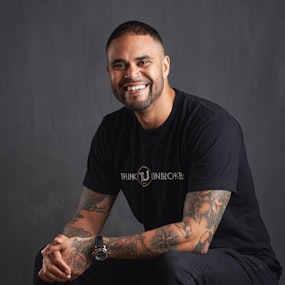
Michael Unbroken
Coach
Michael is an entrepreneur, best-selling author, speaker, coach, and advocate for adult survivors of childhood trauma.
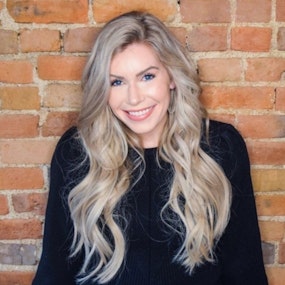
Tamara Fox
Health and Wellness Coach
Tamara is a Health and Wellness Coach who partners with her clients to transform their lives. Tamara became a coach after overcoming her own experiences with trauma, healing, and health challenges.
Tamara takes her own experiences, empathy, education, and resources to empower her clients to be who they want to be... regardless of their past experiences. Tamara knows and has proven it’s possible to overcome anything and find happiness, success, and a fulfilled, empowered life.
Tamara’s experiences with trauma started young. In 2011 at 19 years old, Tamara woke up in the middle of the night in her apartment to a masked man standing over her bed with a gun who robbed her and raped her. Tamara saw her life flash before her eyes (saw memories of her childhood) and thought she was going to die.
Having survived that experience, Tamara struggled with severe anxiety, PTSD and depression and started with traditional western medicine (every prescription available) to help her heal in combination with therapy (talk therapy, EMDR and more). After years of healing Tamara shifted to a more holistic / eastern medicine approach and is grateful that today she's in a place where she can manage her health through a holistic and eastern medicine approach free from prescriptions.
The experience in 2011 wasn't the end of Tamara's experience with trauma. Prior, before and after 2011 Tamara's father was struggling with a severe opioid addiction that turned him into someone no one recognized and made him verbally abusive during black outs...… Read More
Welcome to The Think Unbroken Podcast!
Here are some of my favorite recent guests!






















